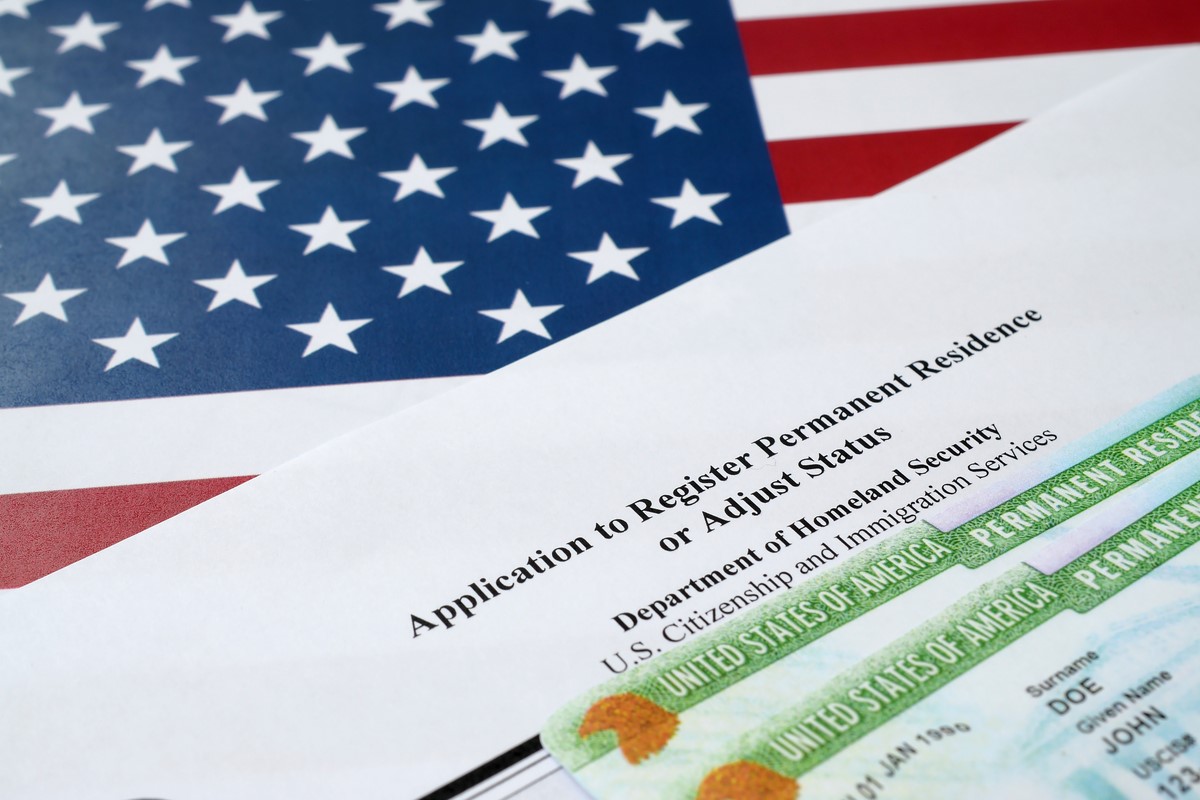What is U.S. Permanent Residency (Green Card)?
U.S. permanent residency is an immigration status that authorizes immigrants to permanently live and work in the United States. Foreign immigrants who obtain lawful permanent residency are given a permanent resident card, which is also known as a green card. EB-5 visa applicants become permanent residents after their I-526 application has been approved by USCIS. However, they become conditional two-year permanent residents instead of full permanent residents at this step of the EB-5 visa process. This enables the applicant to come to the United States to oversee their EB-5 investment for a two year period. At the end of this period, the investor then applies for full permanent residency by filing the I-829 application. Once this application is accepted, the investor, their spouse and their unmarried children under the age of 21 can permanently live and work in the United States for the rest of their lives. They are also given the option to apply for full U.S. citizenship after five years.
Rights of Permanent Residents (Green Card Holders)
United States permanent residents, also known as green card holders, are afforded many rights. Permanent residents can permanently live and work anywhere within the United States, thus, permanent residents can choose to live and work in any U.S. state that they desire. Permanent residents are fully protected by all federal, state and local U.S. laws.
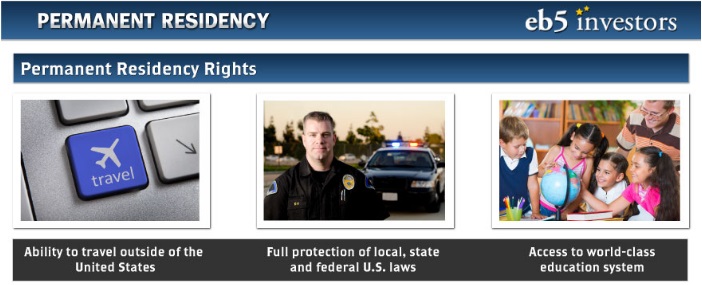
They also have access to one of the best higher education systems in the world and may be able to avoid international fees at colleges and universities. By living in the United States, permanent residents also have close access to world-class medical care. If they wish, permanent residents can also travel outside of the United States at any point during their permanent residency period. They also have the right to become U.S. citizens if they choose to do so, although this is not a requirement of permanent residency.
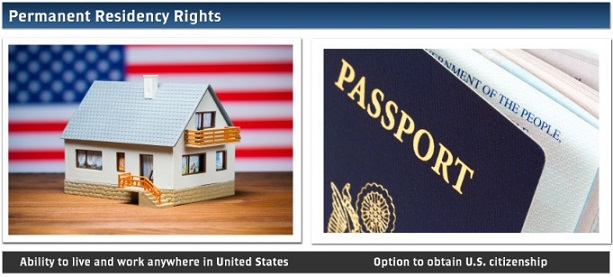
Permanent Residency Rights
- Ability to live and work anywhere in United States
- Full protection of local, state and federal U.S. laws
- Access to a world-class higher education system
- Access to world-class medical care
- Ability to travel outside of the United States
- Option to obtain U.S. citizenship
Responsibilities of Permanent Residents
In addition to being afforded expanded rights, permanent residents must also fulfill many responsibilities. They must pay all applicable taxes, just as U.S. citizens must. This means that permanent residents must file income tax returns with the U.S. Internal Revenue Service (IRS). This taxation is based on the permanent resident’s gross worldwide income.
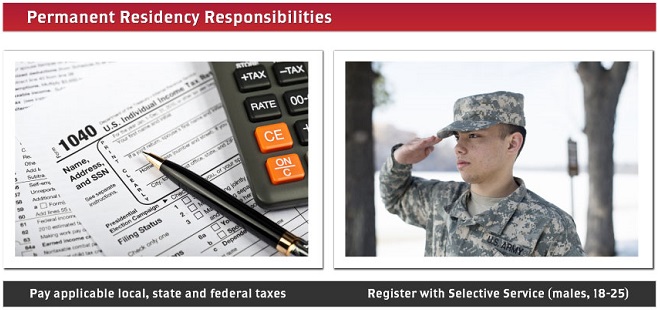
However, immigrants from countries that have a tax treaty with the United States can get credit for payment of foreign taxes. Green card holders must also pay all applicable state taxes. Like U.S. citizens, male permanent residents between the ages of 18 and 25 must register with Selective Service. Registering with Selective Service makes these men eligible to be drafted into the U.S. military in the event that the United States goes to war. Permanent residents must also be of good moral character.
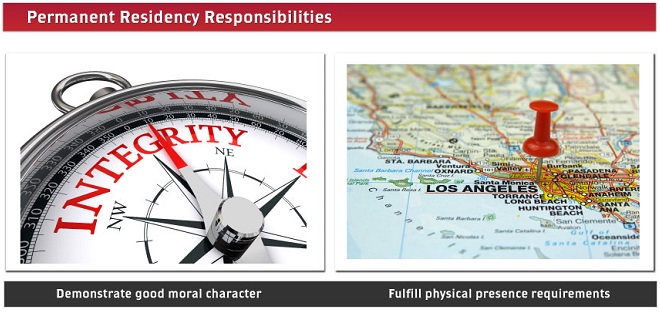
Permanent Residency Responsibilities
- Pay applicable local, state and federal taxes
- Register* with Selective Service (males, 18-25)
- Demonstrate good moral character
- Fulfill physical presence requirements
*Registering with Selective Service does not mean that you have to serve in the U.S. Armed Forces
Permanent Residency vs. Citizenship
U.S. citizenship and permanent residency are not the same. Permanent residents are not permitted to hold U.S. passports. Rather, permanent residents remain nationals of their home country of citizenship. U.S. permanent residents are not permitted to vote in U.S. elections or run for office. Citizens may have an easier time bringing family members to the United States and have greater access to federal jobs. U.S. citizens are also eligible for more federal assistance and benefits programs such as Medicare and Social Security. Permanent residents are subject to physical residence requirements whereas U.S citizens are not. For instance, permanent residents may lose their residency status if they remain outside of the U.S. for over a year without obtaining the proper reentry permit; if they obtain a reentry permit but do not get a returning visa after two years; if they move to another country with the intention of permanently living there; or if they fail to file federal tax returns while living overseas for any period of time. In order to enjoy the rights of full citizens, permanent residents must file for U.S. citizenship through USCIS. Permanent residents are typically able to file for full citizenship after being in the United States for a period of five years.
| Right | Permanent Resident | U.S. Citizen |
| Can live and work anywhere in the US? | Yes | Yes |
| Are protected by US law? | Yes | Yes |
| Can access higher education system | Yes | yes |
| Can access medical care? | Yes | Yes |
| Can travel outside of the US? | Yes | Yes |
| Can get US passport? | No | Yes |
| Can run for most elected offices? | No | Yes |
| Have access to federal benefits? | No | yes |
| Must follow residency requirements? | Yes | Yes |






